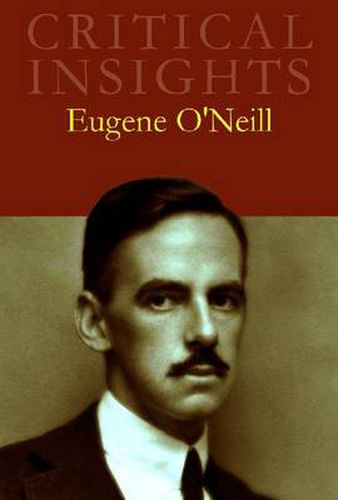Readings Newsletter
Become a Readings Member to make your shopping experience even easier.
Sign in or sign up for free!
You’re not far away from qualifying for FREE standard shipping within Australia
You’ve qualified for FREE standard shipping within Australia
The cart is loading…






A great starting point for students seeking an introduction to O'Neill and the critical discussions surrounding his work. Eugene O'Neill has the distinction, to this day, of being the only American dramatist to win the Nobel Prize for Literature, which he received in 1936. The most remarkable thing about this award is that O'Neill received it before he wrote the plays that are considered his masterpieces and for which he is now best known, The Iceman Cometh, Long Day’s Journey Into Night, and A Moon for the Misbegotten. At the time he received the Nobel Prize, he had already changed the face of American drama forever, bringing both deeper subject matter and richer dramaturgical forms to an American stage that had, up until O'Neill first appeared on the theatrical scene in 1916, been limited mostly to slight comedies and superficial melodramas. His was the dominant voice in the American theatre throughout the 1920’s and at least the first half of the 1930’s. Edited by Steven Bloom, Associate Vice President for Academic Affairs; Dean of Undergraduate Education and Professor of English, Lasell College, this volume in the Critical Insights series presents a variety of new essays on the American dramatist. For readers who are studying O'Neill for the first time, a biographical sketch relates the details of his life and four essays survey the critical reception of O'Neill’s work, explore its cultural and historical contexts, situate O'Neill among his contemporaries, and review key themes in his work. Readers seeking a deeper understanding of the writer can then move on to other essays that explore topics like O'Neill’s views on family, faith and male-female relationships; his symbolism and imagery, and his responses to the issues of his day. Works discussed include Long Day’s Journey into Night, Anna Christie, Strange Interlude, Ah! Wilderness, and The Iceman Cometh. Among the contributors are Richard Eaton, Brenda Murphy, Trevor Wise, and William Davies King. Rounding out the volume are a chronology of O'Neill’s life and a list of his principle publications as well as a bibliography for readers seeking to study this fascinating author in greater depth.
$9.00 standard shipping within Australia
FREE standard shipping within Australia for orders over $100.00
Express & International shipping calculated at checkout
A great starting point for students seeking an introduction to O'Neill and the critical discussions surrounding his work. Eugene O'Neill has the distinction, to this day, of being the only American dramatist to win the Nobel Prize for Literature, which he received in 1936. The most remarkable thing about this award is that O'Neill received it before he wrote the plays that are considered his masterpieces and for which he is now best known, The Iceman Cometh, Long Day’s Journey Into Night, and A Moon for the Misbegotten. At the time he received the Nobel Prize, he had already changed the face of American drama forever, bringing both deeper subject matter and richer dramaturgical forms to an American stage that had, up until O'Neill first appeared on the theatrical scene in 1916, been limited mostly to slight comedies and superficial melodramas. His was the dominant voice in the American theatre throughout the 1920’s and at least the first half of the 1930’s. Edited by Steven Bloom, Associate Vice President for Academic Affairs; Dean of Undergraduate Education and Professor of English, Lasell College, this volume in the Critical Insights series presents a variety of new essays on the American dramatist. For readers who are studying O'Neill for the first time, a biographical sketch relates the details of his life and four essays survey the critical reception of O'Neill’s work, explore its cultural and historical contexts, situate O'Neill among his contemporaries, and review key themes in his work. Readers seeking a deeper understanding of the writer can then move on to other essays that explore topics like O'Neill’s views on family, faith and male-female relationships; his symbolism and imagery, and his responses to the issues of his day. Works discussed include Long Day’s Journey into Night, Anna Christie, Strange Interlude, Ah! Wilderness, and The Iceman Cometh. Among the contributors are Richard Eaton, Brenda Murphy, Trevor Wise, and William Davies King. Rounding out the volume are a chronology of O'Neill’s life and a list of his principle publications as well as a bibliography for readers seeking to study this fascinating author in greater depth.